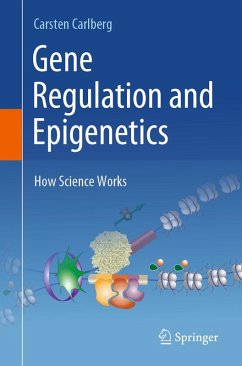Epigenetics refers to the packaging and accessibility of the genome in each of the trillions of cells in our bodies. The prefix "epi" (meaning "upon," "above," or "beyond") indicates that epigenetic processes do not alter the DNA sequence of our genome, adding a layer of information beyond that encoded in our genome. Genomic DNA is wrapped around complexes of histone proteins, helping it fit into a cell nucleus with a diameter of less than 10 µm. This protein-DNA complex is known as chromatin.
The content of this book is linked to the "Molecular Medicine and Genetics" course, which the author has lectured on in various forms since 2002 at the University of Eastern Finland in Kuopio. This book is an updated version of the textbooks "Mechanisms of Gene Regulation" and "Human Epigenomics." It is divided into 16 chapters. Following two introductory chapters, four chapters explore gene regulation from the perspective of transcription factors, while another four chapters focus on chromatin and non-coding RNA. Three chapters then discuss the impact of epigenetics from a health perspective, and the final three chapters address epigenetics from the perspective of diseases. A glossary in the appendix explains the major specialist terms.
Dieser Download kann aus rechtlichen Gründen nur mit Rechnungsadresse in A, B, BG, CY, CZ, D, DK, EW, E, FIN, F, GR, HR, H, IRL, I, LT, L, LR, M, NL, PL, P, R, S, SLO, SK ausgeliefert werden.









